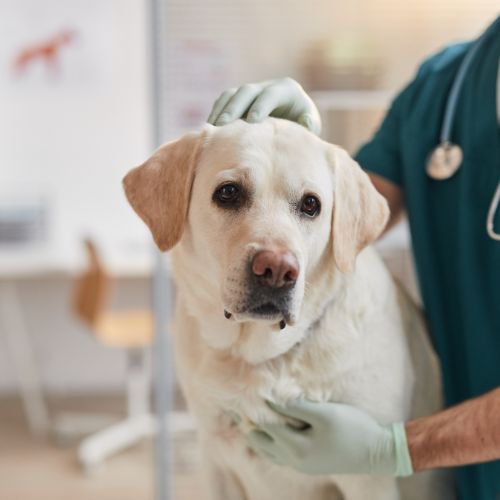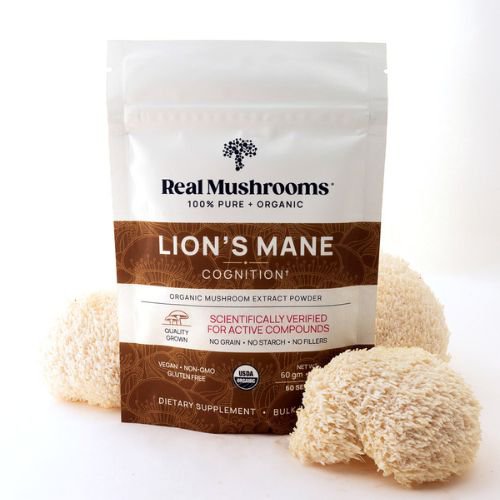Menu


Librela™ and Solensia™ are new pharmaceuticals recognized in veterinary medicine for osteoarthritis (OA) in dogs and cats, respectively [1] [2]. These drugs use monoclonal antibodies (MAB) as their mechanism of action to bind up a specific molecule involved in the pain associated with arthritis in dogs and cats.
The original research that was part of gaining FDA approval of Solensia™ and Librela™ for dogs, had pretty good rates of success in significant pain relief with minimal side effects. The medication is also very convenient in that only one injection monthly is needed to achieve relief from osteoarthritis pain.
Unfortunately, as is often the case with FDA-approved drugs, the true test of the drug’s effectiveness and side effects comes when the drug becomes widely used through its availability in the marketplace. This has proven true for both Librela™ and Solensia™, where some serious side effects have been noted by several pet parents and veterinarians.
This article will help pet parents understand some of the possible risks associated with these pharmaceuticals. Further, it will suggest how a natural intervention of lion’s mane mushroom supplementation could be used to reverse some of the serious side effects if they occur.

Researchers created monoclonal antibodies through genetic manipulation of yeast that are specific for the molecule associated with osteoarthritic pain. The molecule that Solensia™ and Librela™ acts upon is known as nerve growth factor (NGF).
When NGF binds to a specific membrane receptor, pain and impaired mobility result. The antibodies in the Solensia™ and Librela™ injections prevent nerve growth factor from binding to the receptor responsible for OA pain, therefore preventing that type of chronic pain from occurring.
The monoclonal antibodies have been hailed as a breakthrough in managing arthritis pain in dogs and cats, and a similar product has been created for people with OA.
The good thing about this form of medication is that it does not pose a risk of toxicity to the liver, kidney, or heart, as our current arthritis medications have that potential. Therefore, these medications have the potential to help pets in pain and restore some of their mobility without the typical risk to the liver, kidney, or heart.
Pet parents have been observing that some pets who are on these MAB drugs have very serious and concerning side effects.
Some dogs are experiencing neurologic problems, like being unsteady on their feet (ataxia). Other dogs have experienced seizures following the Librela™ injection. Still others have developed hypersensitivity-like reactions (anaphylaxis, pruritus, facial swelling).
Other side effects that can potentially arise from the use of these two MAB drugs for arthritis in dogs and cats are [3]:
There is no published, peer-reviewed paper describing these side effects in dogs.
There is one published, peer-reviewed paper detailing reported side effects observed with the use of Solensia™ in cats [4]. This MAB for cats was launched several years before the launching of Librela™. This is why we have this adverse event paper for cats. Hopefully, a publication regarding the side effects in dogs will be published soon.
The side effects, specifically found in the five cats included in this feline medicine paper, were limited to dermatological lesions that were described as:

Adverse reactions have been observed in humans using MAB injections for osteoarthritis pain relief. People report experiencing hyperesthesia (increased nerve sensitivity) and paraesthesia (feels like pins and needles, skin crawling, numbness, or itching).
Also, a burning sensation has been described by people taking the MAB injections. If these kinds of side effects are what some cats are also feeling following the Solensia™ injections, you can understand why they would be scratching themselves sore.
Nerve growth factor (NGF) is a very important chemical messenger in mammals, including people and our beloved dogs and cats.
NGF works in part on sensory nerves, which blocks the body’s ability to communicate pain signals to the brain. It has an influence, not just on the nervous system, but also on the immune system. In the nervous system, the effects of NGF influence the survival of nerves and the growth of nerves. This may be why one of the side effects noted from Librela™ are seizures and weakness.
NGF is involved in the inflammatory process and can play a role in reducing inflammation. Certain nerves that produce the neurotransmitter acetylcholine depend on NGF for survival and maintenance. This may be another reason why certain adverse symptoms have been observed with Librela™.
If there is a sudden loss of NGF due to it being bound up by the antibodies of Librela™, there may be a dramatic increase in inflammation due to the loss of this neurotransmitter. This effect may also influence movement difficulty, weakness, and seizures.
Lion’s mane mushroom contains terpenes and other molecules that stimulate the production of NGF. In particular, it stimulates the production of a specific NGF found in the central nervous system called brain-derived NGF or bNGF.
The possibility exists that using lion’s mane mushroom supplementation for dogs concurrently with the use of Librela™, or in the event of an adverse side effect, might reduce the development of side effects or allow the dog (or cat) to overcome those side effects.

This theory has not been tested in an objective study, but it does seem like a potential antidote to these adverse reactions to both Librela™ and Solensia™.
In consultation with plant pharmacologist Kevin Spelman, Ph.D., who has co-authored a peer-reviewed paper on the pharmacology of lion’s mane, he expressed that using lion’s mane with its influence on NGF levels has the potential to be helpful [5]. Dr. Spelman said that pet parents who want to give lion’s mane mushroom extract to their dog or cat would likely need to give relatively high doses.
Also, it could take up to four weeks (or possibly more) to achieve any benefits. It is important to understand that at this point, the use of lion’s mane mushroom to help with the side effects of Librela™ or Solensia™ is still in the experimental phase.
Monoclonal antibodies are a new pharmaceutical technology that addresses different problems, such as cancer, atopy, and now, arthritis pain. Although the technology promises a less toxic medication in terms of adverse effects on the kidneys and liver, a whole new set of problems now exist with this newly emerged category of drug.
MAB drugs are quite specific for certain protein molecules associated with a disease condition. However, because these molecules are also involved in other bodily processes, their loss due to the monoclonal antibodies binding them up may cause unexpected adverse effects in other systems, as we have seen with both Librela and Solensia.
Due to the effect of Librela™ and Solensia™ on reducing the serum and tissue levels of NGF, there is a lot of interest in the NGF-stimulating properties of lion’s mane mushroom for addressing this problem. In all likelihood, if lion’s mane supplementation were able to help, it would take fairly significant amounts used over a fairly prolonged period, possibly on the order of 1-3 months.
This is why it’s vital to make regular visits to your local veterinary clinic for a monthly injection or a routine checkup. Doing so will also help you avoid accidental self-injection of these pain medications to your pet.
Pet parents need to learn that there are possible adverse side effects of these two new MABs for osteoarthritis to make an informed decision regarding the use of an MAB for their furry friend. To properly diagnose pain in your pets, it’s important to seek medical advice immediately from a licensed veterinarian to confirm if they need proper medication.
Facebook Groups dedicated to Librela™ and its adverse effects:

Disclaimer: The information or products mentioned in this article are provided as information resources only, and are not to be used or relied on to diagnose, treat, cure, or prevent any disease. This information does not create any patient-doctor relationship, and should not be used as a substitute for professional diagnosis and treatment. The information is intended for health care professionals only. The statements made in this article have not been evaluated by the Food and Drug Administration. Any products mentioned are not intended to diagnose, treat, cure, or prevent any disease. The information in this article is intended for educational purposes. The information is not intended to replace medical advice offered by licensed medical physicians. Please consult your doctor or health practitioner for any medical advice.